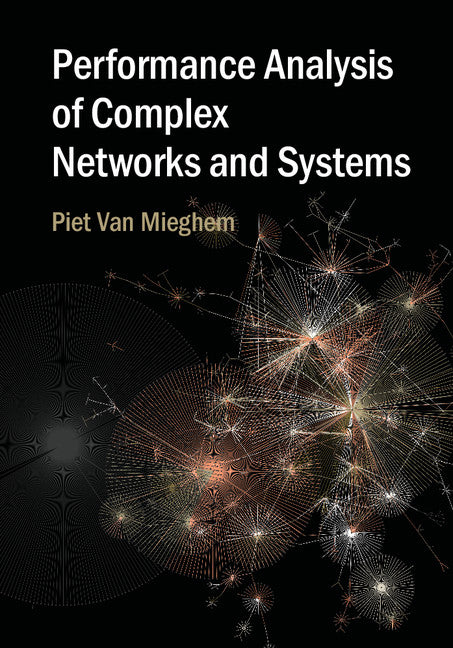Freshly Printed - allow 8 days lead
Couldn't load pickup availability
Performance Analysis of Complex Networks and Systems
Provides the mathematical, stochastic and graph theoretic methods to analyse the performance and robustness of complex networks and systems.
Piet Van Mieghem (Author)
9781107058606, Cambridge University Press
Hardback, published 24 April 2014
688 pages, 103 b/w illus. 4 tables 104 exercises
25.3 x 17.8 x 4 cm, 1.38 kg
This rigorous, self-contained book describes mathematical and, in particular, stochastic and graph theoretic methods to assess the performance of complex networks and systems. It comprises three parts: the first is a review of probability theory; Part II covers the classical theory of stochastic processes (Poisson, Markov and queueing theory), which are considered to be the basic building blocks for performance evaluation studies; Part III focuses on the rapidly expanding new field of network science. This part deals with the recently obtained insight that many very different large complex networks – such as the Internet, World Wide Web, metabolic and human brain networks, utility infrastructures, social networks – evolve and behave according to general common scaling laws. This understanding is useful when assessing the end-to-end quality of Internet services and when designing robust and secure networks. Containing problems and solved solutions, the book is ideal for graduate students taking courses in performance analysis.
1. Introduction
Part I. Probability Theory: 2. Random variables
3. Basic distributions
4. Correlation
5. Inequalities
6. Limit laws
Part II. Stochastic Processes: 7. The Poisson process
8. Renewal theory
9. Discrete-time Markov chains
10. Continuous-time Markov chains
11. Applications of Markov chains
12. Branching processes
13. General queueing theory
14. Queueing models
Part III. Network Science: 15. General characteristics of graphs
16. The shortest path problem
17. Epidemics in networks
18. The efficiency of multicast
19. The hopcount and weight to an anycast group
Appendix A. A summary of matrix theory
Appendix B. Solutions to problems.
Subject Areas: Computer networking & communications [UT], Electrical engineering [THR], Applied mathematics [PBW], Probability & statistics [PBT]


